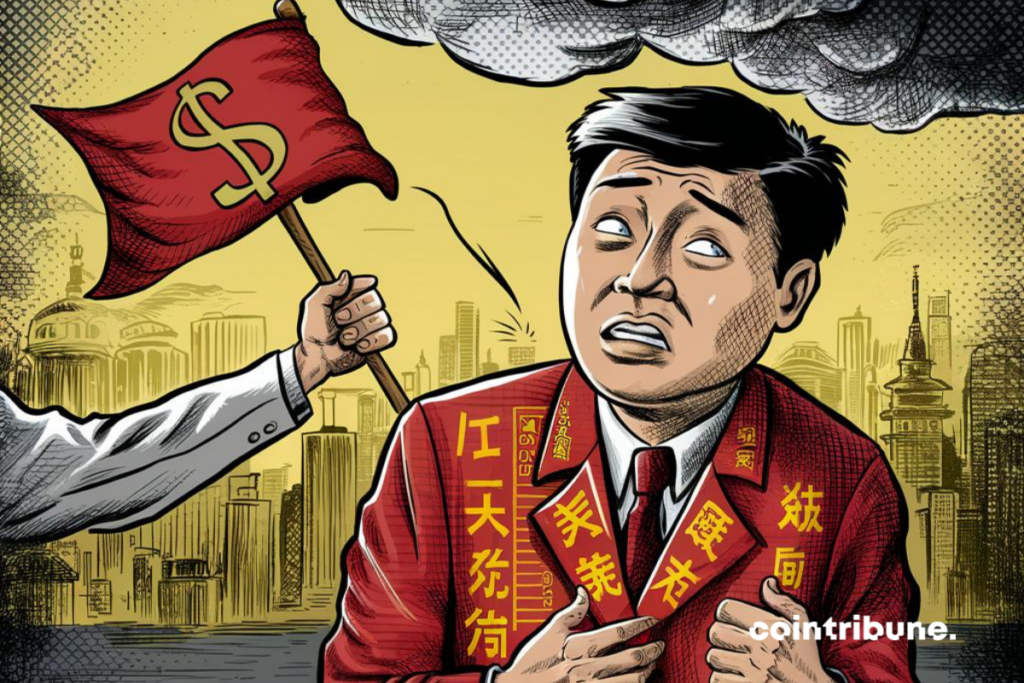Economy: China Faces an Imminent Economic Slowdown
0
0
The grand economic meeting of Xi Jinping recently drew attention. Indeed, Chinese leaders seem to be preparing for a slowdown in growth, while reaffirming their commitment to “high-quality development.” But what does this statement actually mean and what impacts can we anticipate for the global economy? Let’s dive into the details of this meeting and explore the potential ramifications of this strategy for China’s economic future.

A strategic shift towards high-quality development
President Xi Jinping has made it clear that high-quality development will henceforth be the driving force of the world’s second-largest economy. Behind this slogan lies a desire to reorient China’s economy towards advanced manufacturing industries. This transition, far from being trivial, suggests increased tolerance for slower but more sustainable growth.
The objective is to progress up the value chain through technological innovation, making China less vulnerable to trade restrictions imposed by the United States.
This strategic choice aims to develop sectors such as green technologies, notably electric cars and solar panels, while reducing dependence on older, polluting industries.
However, this reorientation could exacerbate trade tensions with Western partners. Already, the rise in Chinese exports has led to new tariffs imposed by the United States and the European Union. This strategy could thus prove to be double-edged, strengthening China’s industrial position while intensifying trade conflicts.
Moderate but resilient growth
Becky Liu, head of Chinese macroeconomic strategy at Standard Chartered, points out that tolerance for slightly slower growth is built into this approach.
The bar for short-term economic stimulus remains high, which means China is betting on long-term resilience rather than quick gains.
Recent economic data shows a Chinese economy in flux, with signs of a slowdown putting pressure on Beijing to further stimulate domestic consumption.
The second-quarter data disappointed, with retail sales in June increasing at the slowest pace since 2022. This slowdown in consumer spending contrasts with export growth, highlighting an imbalance that authorities are seeking to correct.
To rebalance the economy, China is turning to emerging and green sectors, while seeking to boost domestic demand. The current economic policy emphasizes the active expansion of domestic demand, although this priority seems more short-term.
Despite these challenges, Chinese authorities remain determined to achieve their annual economic growth targets, set around 5%. This persistence indicates a willingness to stabilize the economy while navigating current turbulences.
The role of the Communist Party in this transition
The Chinese Communist Party plays a crucial role in the implementation of these economic strategies. The recent economic meeting highlighted party directives, which remain essential to understanding the future direction of China’s economy.
The vague statements from the meeting need to be followed by concrete measures, often developed during subsequent Politburo meetings. These meetings are crucial for turning grand speeches into practical and measurable policies.
Centralized control and rigorous economic planning remain at the core of China’s strategy. This model allows rapid adaptation to global economic changes, although it also involves rigid management that can limit short-term flexibility.
The party emphasizes a long-term vision, aiming to create a robust economy capable of withstanding external shocks. This approach contrasts with the fast and often volatile economic cycles of Western economies.
China, under the leadership of Xi Jinping, is preparing for an economic future marked by slower but higher-quality growth. This high-quality development strategy, though ambitious, will have to navigate the challenges of trade tensions and internal rebalancing needs. The Communist Party’s ability to implement these policies will be crucial for the country’s economic future. Meanwhile, Saudi Arabia threatens to dump French debt.
0
0









